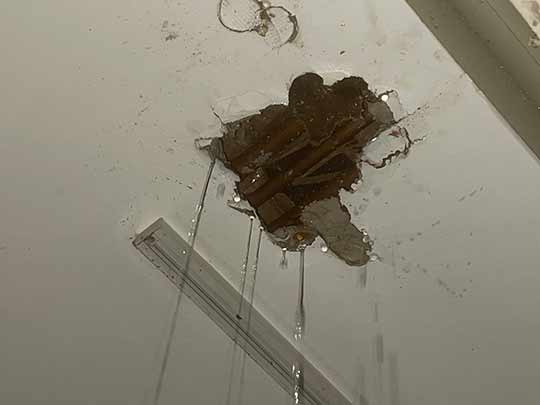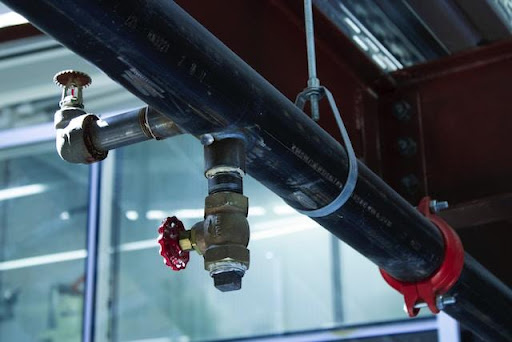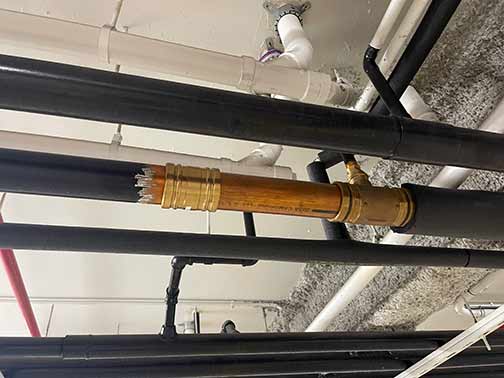
Water damage can be a homeowner’s worst nightmare. Whether it’s due to heavy rainfall, a natural disaster, or a burst pipe, the consequences can be devastating. A burst pipe in your home can quickly lead to a flooded house, damaged belongings, and costly repairs. Knowing how to handle this situation promptly and effectively is crucial in minimizing the damage. Here we will discuss the steps you should take if you experience a burst pipe emergency in your home.
Shut off the Water
As soon as you discover a burst pipe, your first step should be to shut off the water supply. This will stop the flow of water and prevent further damage. Locate the main water valve in your home, which is usually in the basement or crawl space. Turn the valve clockwise to shut off the water. If you are unsure of the location or cannot shut off the main valve, contact a professional plumber who can assist you.
Turn Off Electricity
Water and electricity can be a dangerous combination. To prevent the risk of electrocution, turn off the electricity in the affected area. Locate the breaker box in your home and switch off the circuit breaker that controls the affected area or consider shutting off power to the entire house. If you are unsure which breaker controls the area, it’s best to turn off the power to the entire house to be safe.
Assess the Damage
Once you have stopped the water flow and turned off the electricity, assess the extent of the water damage. Take note of any areas that have been affected, including walls, floors, furniture, and personal belongings. Document the damage by taking photographs for insurance purposes.
Call Your Insurance Company
Contact your insurance company as soon as possible to report the burst pipe and the resulting water damage. They will guide you through the claims process and provide you with the necessary paperwork. Be sure to provide them with the details of the incident and the photos of the damage you have taken.
Remove the Water
The next step is to remove the water from your home. Depending on the amount of water and the size of the affected area, you may be able to do this yourself with a wet/dry vacuum or a pump. If the damage is extensive, it is recommended to hire a basement water extraction service. They have the expertise and equipment to efficiently extract the water and reduce the risk of mold and secondary damage.
Dry Out the Affected Area
After removing the water, it is essential to thoroughly dry out the affected area to prevent further damage and the growth of mold. Use fans, dehumidifiers, and open windows to increase air circulation and promote drying. Dry the affected area as quickly as possible to minimize the risk of mold growth.
Document Damaged Belongings
If any personal belongings have been damaged by the water, document them for your insurance claim. Create an inventory of the damaged items and gather any receipts or proof of purchase that you may have. Your insurance company will need this information to determine the value of your belongings and process your claim.
Seek Professional Assistance
While you may be able to handle some aspects of the water damage cleanup yourself, it is advisable to seek professional assistance, especially for extensive damage. A professional water damage restoration company will have the knowledge, experience, and equipment to thoroughly dry out your home, prevent mold growth, and perform necessary repairs. They can also help with coordinating the insurance claims process.
Prevent Future Incidents
Once the water damage has been addressed and repairs have been made, it is important to take steps to prevent future incidents. Insulate pipes in cold areas, such as basements and attics, to prevent freezing and bursting. Regularly inspect pipes for any signs of deterioration or leaks, and promptly repair or replace them as needed.
To Wrap It Up
A burst pipe in your home can cause significant water damage and disrupt your daily life. By following the steps outlined in this article, you can effectively handle a burst pipe situation and minimize the damage. Remember to shut off the water, turn off the electricity, assess the damage, contact your insurance company, remove the water, dry out the affected area, document damaged belongings, seek professional assistance if needed, and take preventive measures to avoid future incidents. Prompt action is key in mitigating the impact of water damage and getting your home back to its pre-damaged condition.



